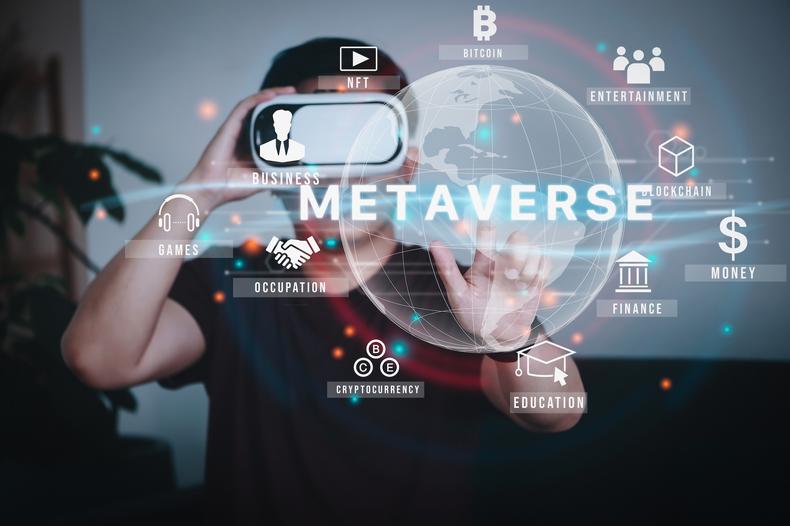The digital landscape is evolving rapidly, and one of the most significant advancements is the rise of the metaverse. This immersive, interconnected virtual world is transforming how brands engage with audiences, presenting unparalleled opportunities for digital marketers. As businesses transition from Web2 to Web3, understanding metaverse marketing is essential for staying competitive in this dynamic space.
What is Metaverse Marketing?
Metaverse marketing refers to the strategies and techniques used to promote products, services, and brands within virtual environments. Unlike traditional digital marketing, which relies on websites, social media, and email campaigns, metaverse marketing leverages 3D virtual spaces, blockchain technology, and digital assets such as NFTs (non-fungible tokens) to create interactive and immersive experiences.
Brands that embrace metaverse marketing can engage consumers in ways that were previously impossible. Whether through virtual storefronts, branded in-game assets, or influencer collaborations in virtual worlds, the metaverse opens up new dimensions for marketing creativity and consumer interaction.
The Evolution from Web2 to Web3
Web2, the internet era dominated by centralized platforms like Facebook, Google, and Amazon, has long been the standard for digital marketing. However, the emergence of Web3—a decentralized version of the internet built on blockchain technology—is reshaping how brands interact with users.
In Web3, users have greater control over their data and digital identities, and businesses must adapt by creating personalized, value-driven experiences rather than relying on intrusive advertising. This shift presents a challenge for marketers but also an opportunity to foster deeper relationships with their audiences in a more transparent and trust-based digital economy.
Key Components of Metaverse Marketing
1. Virtual Reality (VR) and Augmented Reality (AR) Experiences
VR and AR technologies are at the heart of metaverse marketing, allowing brands to create immersive experiences that engage users on a deeper level. Companies like Nike and Gucci have already launched virtual stores and digital showrooms where users can interact with products in 3D environments before making a purchase.
These technologies enable brands to offer interactive product demonstrations, gamified shopping experiences, and branded virtual worlds that enhance consumer engagement. As VR headsets become more affordable and AR technology integrates seamlessly with smartphones, these marketing strategies will become even more prevalent.
2. NFTs and Digital Collectibles
Non-fungible tokens (NFTs) are unique digital assets that can represent anything from artwork to virtual real estate. For marketers, NFTs offer a powerful tool for brand loyalty and customer engagement. Brands can create limited-edition digital collectibles, virtual merchandise, or membership-based NFT programs that provide exclusive perks to customers.
Luxury brands such as Louis Vuitton and Burberry have already launched NFT campaigns that merge digital ownership with physical products. By leveraging NFTs, marketers can tap into a new revenue stream while creating a sense of exclusivity and community among consumers.
3. Branded Virtual Spaces and Events
Just as physical stores and events play a crucial role in traditional marketing, branded virtual spaces in the metaverse serve as hubs for customer engagement. Companies can create virtual headquarters, interactive brand experiences, and sponsored events within platforms like Decentraland, The Sandbox, or Roblox.
These virtual spaces allow brands to host product launches, live concerts, and networking events, fostering direct interactions with their audience. By utilizing gamification elements, brands can also incentivize engagement, rewarding users with virtual goods, discounts, or loyalty points.
Benefits of Metaverse Marketing

1. Enhanced Consumer Engagement
Traditional digital marketing often struggles with capturing user attention, but the metaverse offers a highly interactive and immersive environment that keeps consumers engaged for longer periods. By creating interactive content and gamified experiences, brands can foster stronger emotional connections with their audience.
For example, rather than viewing a static ad, users can explore a virtual showroom, interact with a product, or participate in a branded mini-game. This level of engagement leads to higher brand recall and conversion rates.
2. Decentralization and Data Ownership
One of the core principles of Web3 is decentralization, which shifts control from large corporations to individual users. This means that marketers must rethink their data collection strategies and focus on building trust with consumers.
Instead of relying on third-party data, brands can use blockchain-based solutions to offer incentives in exchange for user engagement. This creates a more ethical and transparent approach to data collection while ensuring users have control over their personal information.
3. Global Reach and Accessibility
Unlike traditional marketing campaigns limited by geographic boundaries, metaverse marketing provides global accessibility. Users from different parts of the world can participate in virtual events, explore branded spaces, and purchase digital products without physical constraints.
This global reach allows brands to scale their marketing efforts and connect with diverse audiences in ways that were previously impossible. Additionally, the metaverse offers new opportunities for localization, enabling brands to tailor their virtual experiences based on regional preferences and cultural nuances.
Challenges and Considerations in Metaverse Marketing
While metaverse marketing presents exciting opportunities, it also comes with unique challenges that brands must navigate.
1. High Technological Barriers
The adoption of metaverse technologies requires investment in hardware, software, and skilled professionals. Not all consumers have access to VR headsets or high-speed internet, which can limit the reach of virtual experiences. Brands must consider accessibility and create hybrid marketing strategies that cater to both Web2 and Web3 users.
2. Security and Privacy Concerns
As with any digital space, security is a major concern in the metaverse. Scams, hacks, and data breaches can erode user trust and negatively impact brand reputation. Marketers must prioritize cybersecurity, educate consumers on safe metaverse interactions, and ensure their virtual environments are built with robust security measures.
3. Regulatory Uncertainty
The metaverse is still an emerging space, and regulatory frameworks are evolving. Brands need to stay informed about legal considerations related to digital assets, intellectual property, and virtual commerce. Ensuring compliance with evolving laws will be crucial for long-term success in the metaverse marketing space.
The Future of Metaverse Marketing
As the metaverse continues to evolve, brands that embrace this new digital frontier will have a competitive advantage. The integration of AI, blockchain, and 5G technology will further enhance metaverse marketing capabilities, making experiences more seamless and interactive.
Early adopters of metaverse marketing will not only establish themselves as industry leaders but also build lasting relationships with the next generation of digital consumers. By investing in immersive experiences, NFTs, and decentralized engagement strategies, brands can unlock new revenue streams and redefine how they connect with their audience.
Conclusion
Metaverse marketing is more than just a trend—it is the next frontier of digital advertising and brand engagement. As businesses transition from traditional online marketing to Web3 strategies, those who understand and leverage the metaverse will be well-positioned for long-term success.
While challenges exist, the potential rewards of metaverse marketing far outweigh the risks. By creating immersive, interactive, and decentralized experiences, brands can tap into new markets, enhance customer engagement, and shape the future of digital marketing. The time to embrace the metaverse is now, and forward-thinking marketers will lead the charge into this new era of digital interaction.
